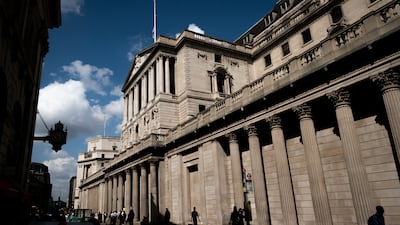The Bank of England has raised interest rates by 0.5 percentage points to 5 per cent, a day after figures showed inflation remained at 8.7 per cent in May.
The central bank's Monetary Policy Committee has now voted 13 times in a row to raise rates, which are at their highest point in 15 years.
The rate increase was the sharpest since February, and double the figure that many economists had been expecting.
"The economy is doing better than expected, but inflation is still too high and we've got to deal with it," Governor of the Bank of England Andrew Bailey said.
"We know this is hard - many people with mortgages or loans will be understandably worried about what this means for them.
"But if we don't raise rates now, it could be worse later."

Caroline Wade is one of those worried people that Mr Bailey was referring to. A 43-year old mother living in Whitstable in Kent, she owns a small business and has recently found a new mortgage as her two-year fixed rate is about to expire.
The best deal that her mortgage broker could get her will cost her an extra £400 a month from August, as nearly half her income is swallowed up in mortgage payments.
"People are beginning to struggle," she told The National.
"Normal people with all the costs of their homes, running a car and childcare. It's just not sustainable. For the normal person who's got a decent job and a decent career, it just doesn't make sense.

"The government needs to be doing something. They're just interested in big business. You can see that with the prices in the supermarkets. Also, the electric and gas suppliers have had huge profits for years and years. Why should the normal average person be shouldering all these increases?
"It should be big business that's profited for years and years that picks up the bill, picks up the pressure."
'Big bazooka rate hike'
Following Wednesday's inflation report, analysts had said the chances of a 0.5 per cent hike today had grown considerably. Interest rates are predicted to reach 6 per cent by the end of the year.
“Expect more mortgage market mayhem after this big bazooka rate hike. Lenders were probably already pricing in a 25-basis-point move, but the repricing of home loans looks likely now to be more dramatic and protracted,” said Gary Smith, partner in financial planning at Evelyn Partners.
“With the benchmark interest rate undergoing a step-change to a level not seen since September 2008, the coming weeks are likely to see a procession of raised loan rates – and a succession of eye-watering estimates of how much monthly and annual loan payments will increase as borrowers come off their cheap fixed deals.”
Personal finance expert at Bestinvest Alice Haine noted that the Bank of England is “taking a more aggressive stance towards tackling high inflation despite the devastating effect this could have on mortgage borrowers.”
“Let’s hope this is not a case of unlucky number 13 with the move likely to exacerbate the panic already gripping Britain’s mortgage market.
“The split decision by the Monetary Policy Committee – with seven in favour of a 0.5 per cent rise and two preferring to stick with the status quo – shows the difficult balancing act the central bank is facing.”
The split in the voting illustrates a definitely more hawkish approach now favoured by the MPC. Although some analysts said the split was telling in itself.
“You do have to wonder as well why two members thought that the prudent thing to do was to keep interest rates on hold,” said Stuart Cole, chief macro economist at Equiti Capital.
“Given the uncertain economic outlook the UK is facing, you would prefer all members of the MPC to be singing from the same hymn sheet.”
Summer squeeze
Meanwhile, business group were quick to react to the rate decision.
“With further rises likely from the Monetary Policy Committee this summer, the squeeze on firms and households is set to intensify as they grapple with the highest borrowing costs in 15 years,” said Anna Leach, deputy chief economist at the Confederation of British Industry.
“In the months ahead, the MPC will be looking for evidence that inflation rates in services and wages in particular are slowing materially before calling an end to rate rises.
“Meanwhile, the extent of fixed rate mortgages in this tightening cycle increases the risk that rates overshoot. It is a delicate balancing act trying to ensure high inflation doesn’t become embedded in the economy while limiting economic damage.”


